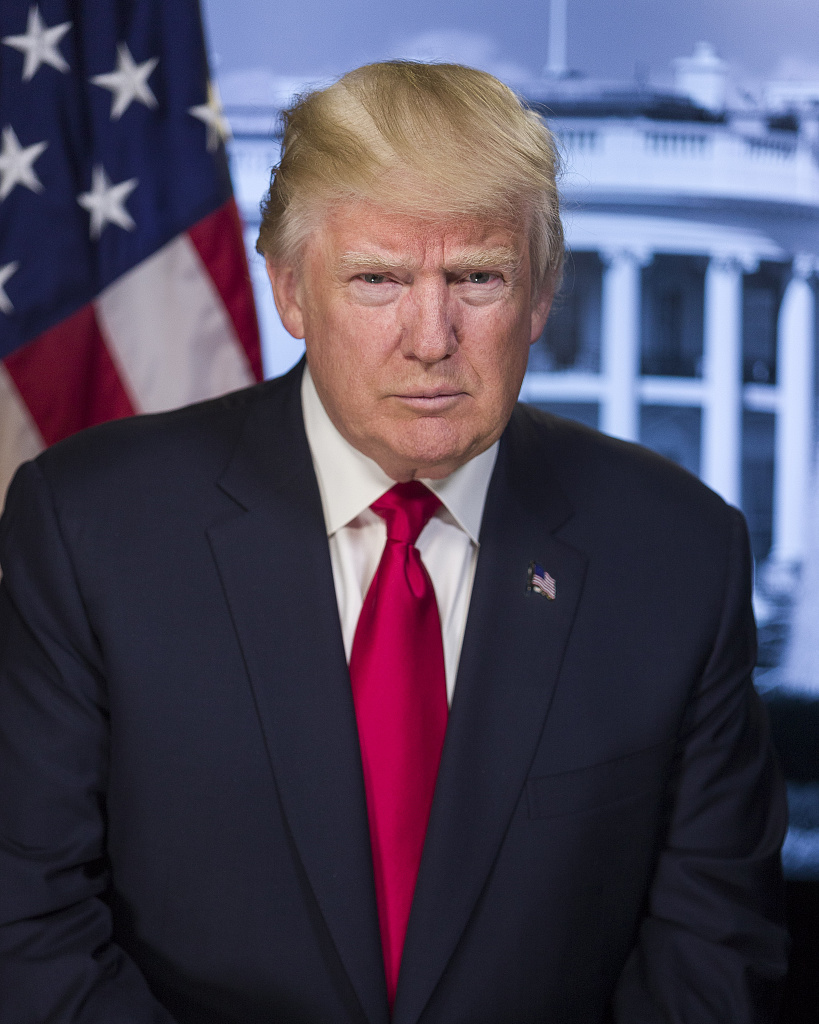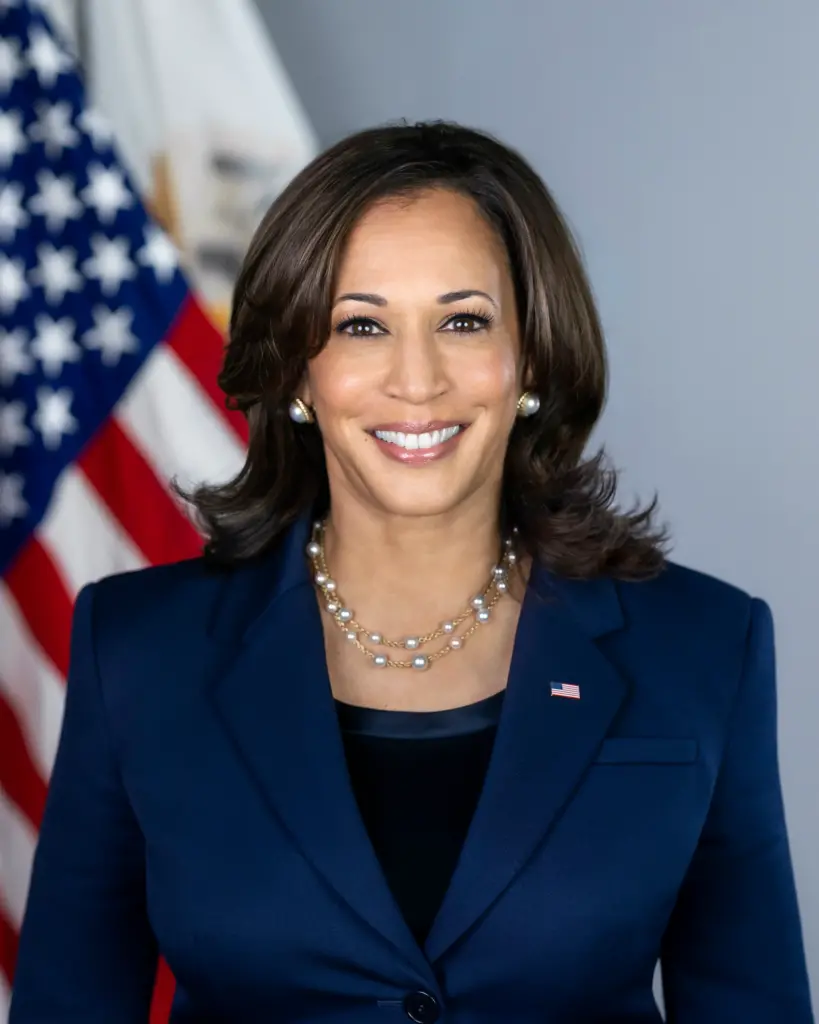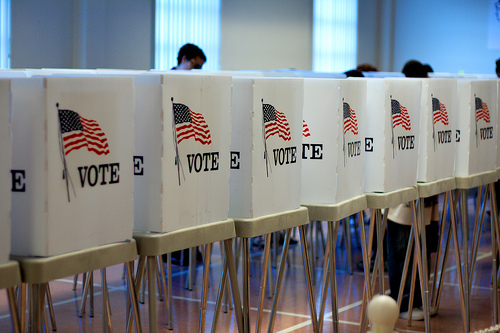Amid major changes in the U.S. presidential race, Trump v Harris foreign policy issues may appear to take a back seat to domestic election concerns. Yet, the increasingly confrontational U.S.-China relationship in military, economic, and political sectors continues to arouse international concern and remains a central policy issue in the 2024 presidential race.
Is China a threat to the United States? Can the United States and China decouple from each other? How should the United States support Taiwan? Watch as experts discuss these critical questions shaping Trump v Harris on China.

What is Donald Trump’s view of China?
Donald Trump favors an approach that continues the existing trade war, views China’s activities and Chinese nationals with suspicion, and is not reliant on existing U.S. networks of alliances and international treaties and partnerships. His administration was defined by withdrawal from key international partnerships and forums. Despite multiple meetings with Chinese President Xi Jinping, who Trump spoke of positively, his administration took action against Chinese technology, immigration of Chinese nationals, Chinese scientists, and U.S.-China student and people-to-people exchange. While Trump did not prioritize human rights in his dealings with China, his administration criticized religious persecution by Beijing. Trump did not collaborate with China on fighting climate change.

What is Kamala Harris’ view of China?
Kamala Harris’ policy position toward China is likely to follow trends established during the Biden administration and as outlined in the 2024 Democratic Party Platform, including cooperating on some but not all global issues, derisking, maintaining the status quo on Taiwan, and strengthening relationships with allies and partners. Throughout her political tenure, Harris has advocated for environmental protection measures and supports the fight against climate change, and has previously spoken out against China’s treatment of Uyghurs and Hong Kong protestors.
U.S.-China Trade War
Trump’s administration was defined by the so-called “trade war” with China, in which both countries escalated tariffs against each other. He has already proposed intensifying the trade war with over 60% tariffs on Chinese goods, measures which have mixed results for U.S. economic security and the public. According to the US-China Business Council, the trade war under Trump’s administration (2016-2020) resulted in 245,000 lost American jobs. The 2024 GOP Platform states intent to revoke China’s Most Favored Nation status, phase out imports of essential goods, and stop China from buying U.S. land and industries. During the September 2024 debate between Harris and Trump, Trump said he would put tariffs on Chinese EVs being manufactured in Mexico.
As a senator, Harris criticized Trump’s approach to Beijing, suggesting she may be skeptical of trade war tactics. She advocates for “de-risking” in dealing with China: rejecting the idea of complete decoupling but advocating for protecting U.S. interests by reducing Western economies’ dependence on China. Regarding China’s economic challenges, Harris noted: “There is increasingly an understanding that China may not be the best bet when you are looking for stability, when you are looking for an investment in a place where there is an adherence to and respect for international rules and norms.” The 2024 Democratic Party Platform states intent to de-risk, not decouple, from China.
In 2022, the trade volume between the United States and China topped $750 billion dollars. Clark Packard discusses how decoupling would affect the American and global economy.
A full-out trade war erupted between the United States and China during the Trump administration, increasing tariffs on Chinese imports in dozens of sectors and leading to rising business competition and costs to consumers. How has this ongoing trade war impacted everyday U.S. and Chinese citizens?
Chinese Migration to the United States
U.S. border officials arrested more than 37,000 Chinese nationals illegally crossing the southern border in 2023, ten times the number in 2022. Immigration, particularly of Chinese nationals, remains a key issue in the 2024 election.
Trump favors stricter measures against illegal immigration and continues to emphasize the threats posed by migrants in his 2024 campaign, asserting that Chinese migrants are building an “army.” In a speech at the 2024 Republican National Convention, Trump asserted that his administration would continue to the build a wall and close the southern border.
Harris’ position on Chinese migration to the United States is not definite. The Biden administration resumed deportation of illegal immigrants back to China in July 2024. Under the Democratic presidency, the U.S. government has been taking steps to limit an influx of migrants at U.S. borders while providing greater services and rights to those already in the United States.
What do Chinese American communities in the United States look like today? NCUSCR PIP Fellow Dr. Qin Gao discusses the results from a year-long survey that looked specifically at the health, economic, and sociopolitical conditions of today’s Chinese American population.
In 2023, U.S. border officials arrested over 37,000 Chinese nationals at the southern border, ten times as many as the previous year. The trend is so pronounced that “walking the line” (走线), as the journey from Central/South America to the U.S. southern border is known on Chinese social media, has become a buzzword in Chinese society. How are U.S. policymakers addressing the influx?
Taiwan
The status and future of Taiwan is a long-term issue in U.S.-China relations. The United States government does not officially recognize Taiwan as a country and does not officially support Taiwanese independence, but continues to maintain robust cultural, economic, and military relations with the island. China maintains that Taiwan is part of its territory, and the United States “acknowledges” but has never stated explicit agreement with this position.
Trump has never clearly indicated whether he would support U.S. defense of Taiwan in case of a Chinese invasion. During his administration, then-Secretary of State Mike Pompeo relaxed restrictions on meetings between U.S. diplomats and Taiwanese counterparts.
In remarks given during a visit to Japan in 2023, Harris articulated opposition to unilateral changes in the China-Taiwan status quo and commitment to Taiwan’s defense as consistent with longstanding policy. The 2024 Democratic Party Platform states commitment to peace and stability in the Taiwan Strait consistent with the U.S. One China Policy.
Official U.S. policy toward Taiwan focuses on developing robust non-state relations with the island while advocating for a peaceful resolution to the cross-strait conflict. When considering American policy toward Taiwan, is more U.S. support good for Taiwan and regional peace?
How worried should we be about a war in the Taiwan Strait? Professor Scott Kastner warns that while the risks of conflict are real, they should not be exaggerated.
Semiconductor Chips
Semiconductors are a critical policy issue in the United States: they are important for everything from cellphones to nuclear weapons, but supply chain bottlenecks and political confrontations drive up scarcity and price. Taiwan is a world leader in semiconductor development, but both the United States and China are investing domestically in this sector.
Trump acknowledges the importance of investment into semiconductors and has criticized Taiwan for taking “about 100%” of the semiconductor industry from the United States.
Harris has been vocal in her support for the U.S. Chips and Science Act to compete with China’s semiconductor industry.
Technology policy expert Paul Triolo examines the complex geopolitical tensions surrounding the global semiconductor industry, its role in the U.S.-China relationship, and potential ways forward for the United States and China.
NCUSCR Director Anja Manuel shines a light on this complex web of collaboration and competition, and discusses what it could mean for humanity’s shared technological future.
Russia and China
As relations with the United States soured, China and Russia declared a “no limit” partnership in February 2022. Since then, China has provided vital economic and diplomatic support that has helped stabilize Russia’s economy and buoy its international reputation despite the Russian invasion of Ukraine.
Trump has called for a quick end to the war in Ukraine to refocus U.S. resources on competition with China. He also has questioned the value of U.S. involvement in NATO, and stated that Ukraine should cede territory to Russia in order to the end the war.
Harris said she is “troubled” by Beijing’s deepening relationship with Moscow. She has warned China against providing lethal support to Russia saying it would “continue the killing and further undermine a rules-based order.” She has pledged to support Ukraine for “as long as it takes” while calling for Russia to pay for the damage it has caused throughout the war.
How strong is China’s partnership with Russia? Should U.S. leaders be worried? Tune in as experts discuss these questions.
China’s support for Russia has increasingly come under scrutiny by U.S. leaders. Experts discuss how Beijing is supporting Moscow and what that means for the United States.
Allies and Partners
The United States’ allies and partners around the world, and especially in the Indo-Pacific, play a role in America’s China policies.
Trump maintained skepticism of traditional alliances, withdrawing from the Trans-Pacific Partnership during his first term, and criticized Japan and South Korea for “free-riding” on U.S. security guarantees. At the same time, he emphasized closer alignment on China policy with Asian allies. During his speech at the 2024 Republican National Convention, Trump alluded to the unreliability of “so-called” allied countries, saying “They’ve taken advantage of us for years.”
Harris has stepped up contacts with U.S. partners in the Indo-Pacific and pledged U.S. commitment to help counter China’s military. Her presidential transition team will be led by former U.S. Ambassador to the Association of Southeast Asian Nations (ASEAN), Yohannes Abraham. During a visit to the Philippines, she criticized China’s harassment of Philippine vessels and condemned Beijing’s intimidation in the South China Sea. During her tenure as Vice President under the Biden administration, the United States has prioritized strengthening alliances with Asian partners, revitalized the Quad with Japan, India, and Australia, launched the Indo-Pacific Economic Framework with a dozen initial partners, and emphasized closer alignment on China policy among NATO countries.
Admiral John C. Aquilino, 26th Commander of the United States Indo-Pacific Command, discusses Sino-American military policy in the context of the overall bilateral relationship.
Concerns over growing trade imbalances, unfair subsidies in key industries, high-profile espionage cases, and China’s continued support for Russia and its war on Ukraine place increasing strain on this pivotal relationship.
Climate Change
The threats posed by a changing climate will affect both the United States and China. In addition to being the world’s two largest polluters, the United States and China also have great potential to lead the world in environmental protection and climate change resilience. How do Trump and Harris compare on China climate policy?
Trump regularly questions the reality of climate change, sought support from oil executives while prioritizing fossil fuels, and withdrew the United States from the landmark Paris Climate Accord and rolled back domestic environmental protections. At the 2024 Republican National Convention, Trump doubled down on “energy dominance” in natural gas and oil, citing U.S. oil reserves as an advantage over China. Biden levied 100% tariffs against Chinese electric vehicles in 2024, while Trump criticized Biden’s emphasis on developing American clean tech because China already has an advantage over U.S. firms.
Harris has made environmental issues a top concern during her political tenure. As Vice President, she helped pass the Inflation Reduction Act and is predicted to continue a strong focus on combating climate change. A vision to tackle the climate crisis is laid out in the 2024 Democratic Party Platform, warning that the Republican platform on climate and energy will “cede the race for the future to China.”
On November 14th, 2023, the United States and China jointly issued the “Sunnylands Statement on Enhancing Cooperation to Address the Climate Crisis” which introduced several areas for U.S.-China climate cooperation. Kelly Sims Gallagher and Li Shuo join the National Committee to discuss the future of U.S.-China climate diplomacy.
Dr. Joanna Lewis, Georgetown University, examines how the United States and China are competing in clean energy. The Inflation Reduction Act is pushing the United States to step up, while China is already a major player in global clean tech.
Chinese Espionage
Preventing foreign interference is a key priority for both the United States and China.
Trump maintains an aggressive stance against Chinese espionage in or near the United States. Regarding the rumored Chinese spy base in Cuba, Trump told Reuters that as president, he would have given the Chinese side 48 hours to leave the island or face new tariffs on Chinese goods. Trump has also expressed concerns with Chinese students or immigrants acting as spies for the PRC, or even building an “army.” The China Initiative, a program combating Beijing’s theft of American intellectual property started by the Justice Department under the Trump administration, was closed down amid controversy in 2022.
Harris’ stance on Chinese espionage is less clear. During her tenure as Vice President, the Biden administration faced significant challenges, most notably the “Chinese spy balloon” that was eventually shot down over South Carolina. The Biden administration also levied tariffs against Chinese entities suspected of involvement with the balloon.
The United States and China have a long history of spying on each other. In this short explainer, John Delury contextualizes current tensions and assesses just how worried Americans should be about Chinese espionage.
In September 2011, sheriff’s deputies noticed three ethnic Chinese men near an Iowa cornfield. What started as a trespassing inquiry turned into a two-year FBI operation investigating Chinese industrial espionage in the agricultural industry.
Author Mara Hvistendahl discusses her book investigating the unique case and its impact on U.S.-China relations.
What Does China Want?
In 2024, the Annual Threat Assessment of the U.S. Intelligence Community declared China “has the capability to directly compete with the United States and U.S. allies and to alter the
rules-based global order in ways that support Beijing’s power and form of governance,” highlighting U.S. recognition of China as a major power with an influential role in world affairs. In October 2024, Harris said at a campaign rally “I will make sure America, not China, wins the competition for the 21st century.”
How will the future U.S. president navigate relations with China amid China’s growing international ambition? Whether perceiving China as a competitor, enemy, or strategic partner, the next presidential administration will need to understand what China wants.
Though China’s development offers new opportunities, its rise is also seen by many as a direct challenge to the post-World War II order largely established by the United States and allies. What is China’s desired role in the world, and what might a future shaped by Chinese goals and priorities look like?
NCUSCR Director Elizabeth Economy discusses China’s goals for the future and the role of the United States in a world where China has greater influence.
China under the leadership of Xi Jinping has become an intense competitor across the globe. economically, technologically, diplomatically, militarily, and in seeking to influence people’s hearts and minds. Bates Gill explains the fundamental motivations driving the country’s dynamic, assertive, and risk-taking approach to the world.
